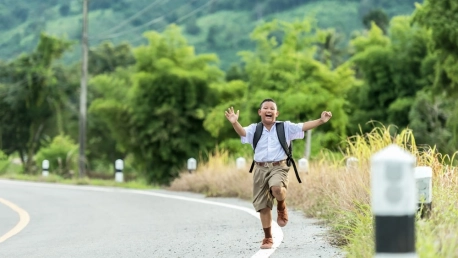The 2020-2021 school year was a difficult one for teachers and students alike. With concerns about health and well-being rising continuously and online schooling somewhat preventing both personal learning and peer interaction, students were left struggling to adapt. Online and hybrid learning were not the only stressors for children and teachers, as many also faced anxieties about returning to physical schools during the pandemic. Access to online platforms and proper equipment also prevented students from having positive learning experiences and added to the factors that made learning difficult. While it remains to be seen just how much the pandemic disrupted education in general, some students may decide to use their summer vacation to level the field.
Using the summer vacation to increase learning opportunities is by no means a new idea, with summer classes already widely available in many countries around the world. After the pandemic, however, the number of students attending these classes might increase. Moreover, students might decide to pursue other activities that could also increase their learning opportunities. Let’s see what these activities are and how they can help.
Summer Programs
By the end of this school year, policy-makers have come to rely on summer schooling, which is now seen as a remedy for a disastrous year that left numerous American students struggling to catch up with their education targets. This is the main reason why many districts decided to expand their summer school options. Funding summer school, afterschool, and other extended learning and enrichment programs—is a big part of the American Rescue Plan Act, which may provide students with the best opportunities to expand their education. And, perhaps for the first time, summer classes are also seen as much more than a boring way to spend the summer.
Person-to-person interactions in online classroom settings have left students feeling alone, lacking friendly conversation and activities with their peers. According to studies, students were also confronted with a lack of social connectedness and sense of belonging, as COVID-19 exacerbated the inequalities separating them. Summer programs are therefore seen as a good way to learn new things while also connecting with others, making friends, and exchanging ideas about common passions and goals. Far from being a burden, summer classes might actually help students regain their social abilities and form new social bonds.
Summer Camps
While it is easy to see why attending summer classes may increase learning opportunities for students across the US, the same cannot be said about summer camps. However, it’s important to note that spending time in these camps is important for children of all ages, as they are known to help during social, emotional, and physical development. ‘A sound mind in a sound body,’ reads an ancient motto, and this motto might be now more true than ever before. After an entire year of learning indoors and being deprived of many of their normal social interactions, students may need more than classes to improve their education.
According to Harvard Graduate School of Education, camps are essential when it comes to social-emotional learning (SEL) because they foster relationship skills and social awareness. Summer camps also cultivate self-awareness and management, while helping children and young adults develop problem-solving skills. Taking a break from technology is another reason why summer camps are a good idea, especially considering the pandemic. Furthermore, camps allow parents to continue working without having to worry about keeping their children safe or turning into personal tutors.
Social-Emotional Learning
SEL is not only a big part of education, it is also an important part of human development in general. And, while summer classes and camps are crucial tools for this process, SEL may require much more. Because SEL aims towards educational equity and excellence by establishing a good school-family-community relationship that improves education and helps human development, SEL practices were seriously affected by the pandemic. Students were told to maintain social distance to protect their health and that of their families, but this had a negative impact when it comes to SEL.
According to UNESCO, the pandemic changed education around the world, so it became extremely important for teachers, parents, and students everywhere to unite and practice being kind, compassionate, and mindful. Classes and camps are not the only activities closely linked to SEL. So are reading and writing, especially by attending book clubs and writing seminars, but also random acts of kindness and mindful walks. Visits to gardens, museums, and art galleries are also an important part of SEL as they help students discover and cherish new ideas and cultures. All these, and other similar activities, may be practiced to increase learning opportunities and help students regain their sense of belonging.









